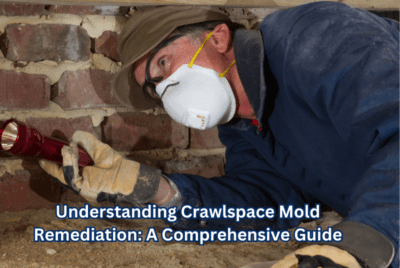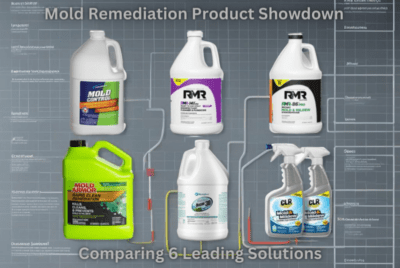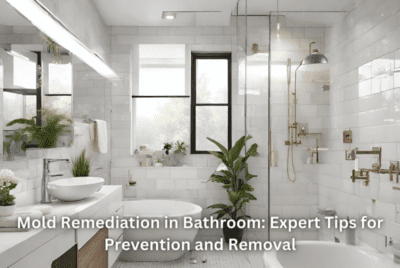What Does Black Mold Smell Like? Unveiling the Odor
Imagine walking into a room and being greeted by an unmistakable, musty odor – the telltale sign of black mold. In this article, we’ll delve into the intriguing world of mold odors, specifically focusing on that distinct scent associated with black mold. We’ll explore the reasons behind this odor, its potential health implications, and actionable steps to tackle it.
Understanding Black Mold
Before we dissect the scent, let’s get familiar with our subject. Black mold, scientifically known as Stachybotrys chartarum, is a type of fungus that thrives in damp, humid environments. Its appearance can range from slimy greenish-black to a powdery texture. What’s concerning is that this seemingly innocuous mold can pose serious health risks when left unchecked.

The Nose Knows: Identifying Black Mold Odor
Ah, that unmistakable smell – often described as earthy, musty, damp, reminiscent of decaying wood or paper, with some even likening it to the comforting scent of cedar. The scent of black mold isn’t just a random occurrence. It’s a result of volatile organic compounds (VOCs) emitted by the mold as it grows and metabolizes. These compounds are released into the air, giving rise to that characteristic odor that can permeate your living spaces.
Factors Influencing Odor Intensity
But here’s the catch: not all black mold infestations smell equally strong. The intensity of the odor can vary based on several factors. Humidity plays a pivotal role – higher humidity levels can enhance the odor, making it more prominent. Conversely, low humidity might make the smell less noticeable. Temperature and ventilation also contribute to the scent’s potency, making it important to consider the overall environment.
Why Does Black Mold Smell Bad?
You might be wondering: why does black mold smell so bad in the first place? Well, the answer lies in mycotoxins – toxic substances produced by certain molds, including black mold. These mycotoxins serve a purpose in nature, but their presence indoors can be detrimental. As they accumulate, they contribute to the distinct odor while also potentially causing health issues in humans.
Differentiating from Other Odors
It’s easy to confuse black mold odor with other household smells. Is it just a damp corner or something more sinister? To differentiate, consider the persistency of the smell and its earthy undertones. Unlike the fleeting scent of cooking or the temporary dampness after rain, black mold odor lingers and intensifies, signaling a possible infestation.
Health Implications of Black Mold Odor
The scent of black mold isn’t just an olfactory nuisance; it’s also a warning sign for potential health hazards. Prolonged exposure to black mold and its odor can lead to various health issues, including allergic reactions, respiratory problems, and even neurological symptoms in extreme cases. If you or your loved ones are experiencing unexplained health issues, black mold might be the hidden culprit.
Locating Hidden Mold Sources
So, you’ve detected the odor – now what? The key to effective mold remediation is locating the source. Black mold often thrives in hidden, damp spots like basements, crawlspaces, and behind walls. Look for visual cues such as discolored patches or visible mold growth. Addressing the source promptly is crucial to prevent further spreading and worsening of the issue.
Preventing and Addressing Black Mold Odor
Prevention is the best strategy when dealing with mold odors. Keep indoor humidity levels in check, fix leaks promptly, and ensure proper ventilation. If you detect the unmistakable scent, don’t ignore it. First, assess the extent of the infestation. Small, manageable patches can often be tackled with DIY methods, such as using vinegar or hydrogen peroxide. However, for extensive infestations, seeking professional help is advisable to ensure your safety.
DIY vs. Professional Help
When it comes to mold remediation, knowing your limits is essential. Small-scale mold growth can sometimes be handled by homeowners using appropriate safety measures and protective gear. However, larger infestations or cases involving toxic mold should always be left to professionals. Their expertise ensures thorough removal and reduces the risk of health complications.
Keeping Your Environment Mold-Free
Preventing mold growth is an ongoing effort. Regularly inspect potential problem areas, maintain proper ventilation, and keep indoor spaces dry. Remember, mold thrives in moisture, so a dry environment is your best defense. By staying vigilant and addressing any issues promptly, you can maintain a mold-free home for you and your loved ones.
Conclusion
The scent of black mold is more than just an unpleasant odor – it’s a signal of potential danger. Understanding the factors behind this distinct aroma, its connection to mycotoxins, and the health implications is crucial for every homeowner. By staying informed, knowing how to detect and differentiate the odor, and taking proactive steps, you can ensure a safe and healthy living environment.
FAQs
- Can black mold grow in dry environments?
While black mold thrives in damp conditions, it can still grow in less humid environments, albeit at a slower pace. - What’s the best way to prevent black mold odor?
Maintaining proper ventilation, fixing leaks promptly, and controlling indoor humidity levels are key preventive measures. - Is black mold always visible?
No, black mold can hide behind walls, ceilings, and other hidden areas, making regular inspections important. - Are there any DIY methods to remove black mold odor?
For small patches, using natural solutions like vinegar or hydrogen peroxide can be effective. However, larger infestations require professional assistance. - Can black mold odor cause health issues even without visible mold growth?
Yes, the odor is often an indicator of mold presence, and prolonged exposure can lead to health problems, even if you can’t see the mold itself.




